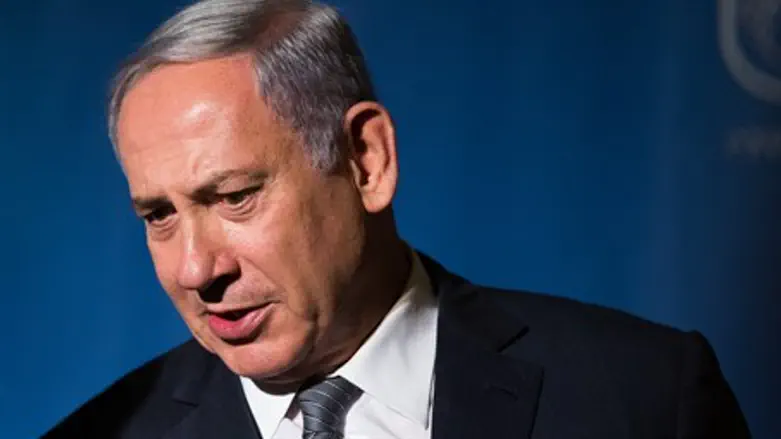
Prime Minister Binyamin Netanyahu told a delegation of visiting U.S. congressmen on Monday that an agreement on reconciliation with Turkey is very close, Haaretz reports.
However, officials in Jerusalem are still waiting to set the decisive meeting between the two negotiating teams during which the remaining disagreements are meant to be closed.
Israel and Turkey have been holding talks in an attempt to renew ties that were cut after the 2010 Mavi Marmara incident.
That incident involved a Turkish flotilla trying to breach the naval blockade. The main ship, later found not to be carrying humanitarian goods despite its claims, refused orders to turn around and forced IDF soldiers to board it where they were attacked and wounded by Islamists armed with knives and metal bars. The soldiers were forced to open fire to defend themselves, killing ten.
Under pressure from President Barack Obama, Prime Minister Binyamin Netanyahu apologized to Turkey over the incident, and last December Israel reportedly agreed to pay $20 million in compensation to the families of the Islamists.
Talks have stalled, however, over Gaza - and after Turkey reportedly demanded Israel lift its import and export restrictions on the Hamas terror stronghold.
In his meeting with the congressman, sources involved in the meeting told Haaretz, Netanyahu was very optimistic about relations with Turkey, repeating his statements on the matter three times during the meeting.
Netanyahu noted that while relations will not return the level they were at a decade ago, normalization will help both nations in advancing a long list of shared regional interests.
The remaining differences between Israel and Turkey only involve the wording of the compromise concerning the Hamas military headquarters operating in Istanbul, which Israel is demanding to close down, a senior Israeli official told Haaretz.
The decisive meeting between the two negotiating teams was supposed to have been held a few weeks ago, but was postponed after the resignation of former Turkish Prime Minister Ahmet Davutoglu and the appointment of a new prime minister in his stead. The next meeting is expected to be held next week in Europe.
In recent weeks, Turkey has sent a number of positive signals towards Israel, including ending its veto over Israeli cooperation with NATO, said the senior Israeli official. In addition, for the first time in five years, Turkey sent senior officials from its foreign ministry to the annual reception at the Israeli embassy in Ankara.
Turkish President Recep Tayyip Erdogan told a press briefing in Zagreb, Croatia a month ago that Turkey offered during negotiations to send a ship, anchored in Israel's Ashdod port, to provide electricity for Gaza to help cope with the Strip's severe energy crisis. He said Israel was reluctant, and offered the establishment of a power plant within Gaza, carried out between Turkey and Germany, as an alternative project.
"We said that could be possible," Erdogan said at the time. "We still haven't given up on the ship. Israel is also positive toward our proposal to address Gaza's water problem through water desalination plants or wells. There is also a need for schools and hospitals. We are seeking donors. Some have promised to contribute."